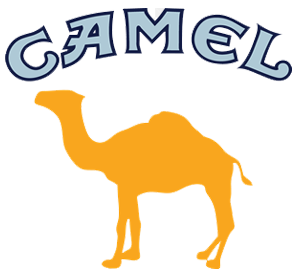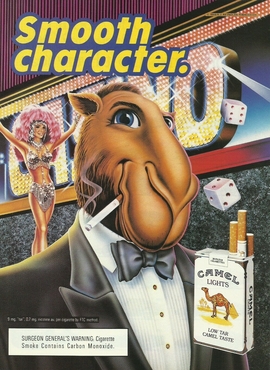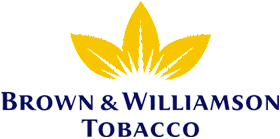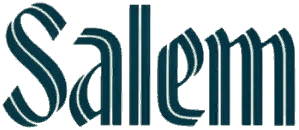
The tobacco industry comprises those persons and companies who are engaged in the growth, preparation for sale, shipment, advertisement, and distribution of tobacco and tobacco-related products. It is a global industry; tobacco can grow in any warm, moist environment, which means it can be farmed on all continents except Antarctica.

The R. J. Reynolds Tobacco Company (RJR) is an American tobacco manufacturing company based in Winston-Salem, North Carolina, and headquartered at the RJR Plaza Building. Founded by R. J. Reynolds in 1875, it is the second-largest tobacco company in the U.S.. The company is a wholly owned subsidiary of Reynolds American, after merging with the U.S. operations of British American Tobacco in 2004.

Camel is an American brand of cigarettes, currently owned and manufactured by the R. J. Reynolds Tobacco Company in the United States and by Japan Tobacco outside the U.S.

Joe Camel was an advertising mascot used by the R. J. Reynolds Tobacco Company (RJR) for their cigarette brand Camel. The character was created in 1974 for a French advertising campaign, and was redesigned for the American market in 1988. He appeared in magazine advertisements, clothing, and billboards among other print media and merchandise.

British American Tobacco plc (BAT) is a British multinational company that manufactures and sells cigarettes, tobacco and other nicotine products. The company, established in 1902, is headquartered in London, England. As of 2019, it is the largest tobacco company in the world based on net sales.

Brown & Williamson Tobacco Corporation was a U.S. tobacco company and a subsidiary of multinational British American Tobacco that produced several popular cigarette brands. It became infamous as the focus of investigations for chemically enhancing the addictiveness of cigarettes. Its former vice-president of research and development, Jeffrey Wigand, was the whistleblower in an investigation conducted by CBS news program 60 Minutes, an event that was dramatized in the film The Insider (1999). Wigand claimed that B&W had introduced chemicals such as ammonia into cigarettes to increase nicotine delivery and increase addictiveness.

Kool is an American brand of menthol cigarette, currently owned and manufactured by ITG Brands LLC, a subsidiary of Imperial Tobacco Company. Kool cigarettes sold outside of the United States are manufactured by British American Tobacco.

Japan Tobacco Inc., abbreviated JT, is a cigarette manufacturing company. It is part of the Nikkei 225 and TOPIX Large70 indices. In 2009 the company was listed at number 312 on the Fortune 500 list. The company is headquartered in Toranomon, Minato, Tokyo and Japan Tobacco International's headquarters are in Geneva, Switzerland. As of 2012 the chairman is Hiroshi Kimura and the CEO is Mitsuomi Koizumi. It was founded as an enterprise of the Japanese government in 1945, and became a public company on 1 April 1985.

Natural American Spirit is an American brand of cigarettes and other tobacco products, currently owned by Reynolds American and manufactured by the Santa Fe Natural Tobacco Company.
Newport is an American brand of menthol cigarettes, currently owned and manufactured by the R. J. Reynolds Tobacco Company. The brand was originally named for the seaport of Newport, Rhode Island.

Salem is an American brand of cigarettes, currently owned and manufactured by ITG Brands, a subsidiary of Imperial Tobacco, inside the U.S. and by Japan Tobacco outside the United States.

Reynolds American, Inc. is an American tobacco company which is a subsidiary of British American Tobacco and is the second-largest tobacco company in the United States. Its holdings include R. J. Reynolds Tobacco Company, American Snuff Company, Santa Fe Natural Tobacco Company, and Niconovum AB.
Winston is an American brand of cigarettes, currently owned and manufactured by ITG Brands, subsidiary of Imperial Tobacco in the United States and by Japan Tobacco outside the U.S. The brand is named after the town where R. J. Reynolds started his business which is Winston-Salem, North Carolina. As of 2017, Winston has the seventh-highest U.S. market share of all cigarette brands, according to the Centers for Disease Control and Prevention and the Maxwell Report.

Tobacco politics refers to the politics surrounding the use and distribution of tobacco.

The Family Smoking Prevention and Tobacco Control Act, is a federal statute in the United States that was signed into law by President Barack Obama on June 22, 2009. The Act gives the Food and Drug Administration the power to regulate the tobacco industry. A signature element of the law imposes new warnings and labels on tobacco packaging and their advertisements, with the goal of discouraging minors and young adults from smoking. The Act also bans flavored cigarettes, places limits on the advertising of tobacco products to minors and requires tobacco companies to seek FDA approval for new tobacco products.
Tobacco marketing targeting African-Americans refers to the practice of customizing tobacco products and advertising techniques specifically to African-American consumers. It is most commonly analyzed through the consumption of mentholated cigarettes, as it represents 47% of black adult smokers and 84% of adolescent black smokers.

R. J. Reynolds Vapor Company is an American electronic cigarette company based in Winston-Salem, North Carolina.

Juul Labs, Inc. is an American electronic cigarette company that spun off from Pax Labs in 2017. Juul Labs makes the Juul electronic cigarette, which atomizes nicotine salts derived from tobacco supplied by one-time use cartridges.
The University of California, San Francisco (UCSF) Truth Tobacco Industry Documents is a digital archive of tobacco industry documents, funded by Truth Initiative and created and maintained by the University of California, San Francisco. The Library is a part of the larger UCSF Industry Documents Library which also includes the Drug Industry Document Archive, the Food Industry Documents Archive and the Chemical Industry Documents Archive. TTID contains over 14 million documents produced by major tobacco companies and organizations, many of them internal strategic memoranda made public as a consequence of the Tobacco Master Settlement Agreement. The documents deal with the tobacco industry's advertising, manufacturing, marketing, sales, and scientific research activities for the last century. Researchers, journalists, students, and activists interested in tobacco control issues and public health policies use the Library extensively to investigate tobacco industry strategies. Research in this archive revealed the tobacco industry playbook and its parallels with techniques linked to climate change denial.
United States v. Philip Morris USA, Inc. was a case in which the United States District Court for the District of Columbia held several major tobacco companies liable for violations of the Racketeer Influenced and Corrupt Organization (RICO) Act by engaging in numerous acts of fraud to further a conspiracy to deceive the American public about nicotine addiction and the health effects of cigarettes and environmental tobacco smoke.















